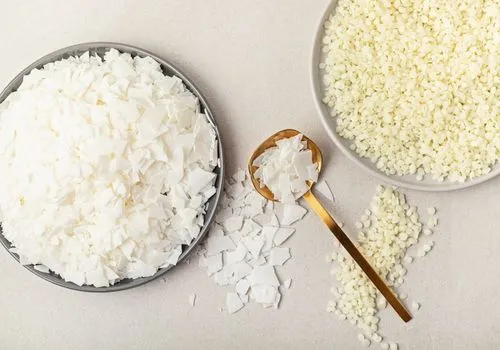Are Trash Bags Recyclable?
A lot of people aren’t sure if trash bags can be recycled. We’re here to clear that up and provide some tips on how to recycle them!
The answer to are trash bags recyclable really boils down to two main factors: what type of bag are you using, and how close are you to a recycling center that can accept the type of bag? Generally speaking, traditional plastic trash bags are not accepted at most recycling centers – meaning that those are likely going to be sent straight to the landfill – however newer compostable or biodegradable bags are usually able to be recycled successfully.
It is essential to note that even if a bag is compostable or biodegradable, it also needs to be recyclable in order for it to have any true impact on sustainability. For example, some cities such as New York City have recently implemented special curbside collection programs that are designed to collect and recycle materials specifically designated as compostable.

As these types of recycling initiatives become more popular, it’s easy to see that there may be an increased demand for both compostable and biodegradable trash bags. The bottom line? While individual circumstances will ultimately determine whether trash bags are recyclable in any specific location when it comes down to it using compostable and/or biodegradable materials is a much more sustainable way of disposing of waste.
Why We Should Recycle Plastic Bags?
As humans, we often overlook the importance of actively enacting change to better our environment. We have been producing plastic bags since the 1960s, and they have become an item that is essential in everyday society, but these single-use items are detrimental to our planet’s health.
Get Your Hand on Your Eco-Friendly Living Starter Guide!
It, therefore, becomes increasingly important that we take actionable steps towards recycling them in order to reduce their impact on the Earth. Recycling plastic bags helps us conserve materials by reducing waste and limits environmental contamination from taking place due to potential exposure from dumped plastics leaking chemicals into soil or water systems.
Additionally, recycled bags can be used for building new items such as clothing, carpets, packaging material, and more! This gives more opportunities to develop more sustainable products that don’t depend on Earth’s resources and encourages individuals and industries to use eco-friendly products rather than contributing significantly to emissions of greenhouse gases over time. Therefore it is impossible to ignore the importance of why we should put all of our plastic bags in a recycling bin!

What Are Most Garbage Bags Made Of?
Most people don’t think twice about the material that their garbage bags are made of. However, what we think of as throwaway items often have complex components and stories behind them. For example, many of our modern-day plastic garbage bags are made with a polymer blend of materials, most commonly low-density polyethylene.
This plastic type is derived from petroleum products and can be reused multiple times with minimal deterioration. It also offers strength and flexibility, meaning it won’t tear or breach easily, reducing the risk of spillage during transport and collection. Some companies now make garbage bags recyclable that are able to decompose in certain environments over time, with technology such as cornstarch used for biodegradability.
As well as offering sustainability features that are better for the environment, more materials like reinforced plastic blends are also being used to improve garbage bag durability – this reduces costs in the long run by giving us fewer punctures to repair and less leakage along the way. So while some might not think much about these mundane plastic garbage bags that line our trash cans, they certainly come with an interesting backstory!
Are Some Plastic Bags Better For The Environment?
Plastic bags have long been a problem for the environment, with the global plastic bag consumption numbers reaching an alarming 5 trillion per year. It is no wonder that now scientists and environmentalists are increasingly looking at finding ways to reduce this number drastically.
Recently, researchers have built upon earlier studies to suggest that not all plastic bags should be completely eliminated if we want to minimize their environmental impact; rather, a combination of different types of them – reusable, biodegradable, and compostable plastics – must be used responsibly in order to create a balance between protecting the environment while satisfying consumers’ basic needs.
Reusable bags possess greater durability and can remain functional for many years if taken care of properly, unlike single-use plastic bags which could last up to 1,000 years before degrading. As for biodegradable plastics and compostable plastics, these break down much faster than regular plastic ones without causing any harm to the environment through their chemical build-up. Therefore, it stands true that some types of plastic bags can indeed be beneficial for the environment if employed conscious decisions are made regarding their procurement and usage by us humans.

How Can You Help Recycle Trash Bags
Recycling trash bags help us preserve our environment for future generations to enjoy. We all have a responsibility in caring for the earth and it starts with something as simple as recycling trash bags.
There are a number of options available when it comes to recycling your used grocery or retail bags. You can either drop off your trash bags at a dedicated collection center or you can bring them to a local grocery store that offers an in-store plastic bag drop-off program.
Most major retailers offer this service. Whatever approach best suits your lifestyle, be sure to always make recycling a part of your routine whenever possible, even if it is just putting a recycling bin out there. Using recycled trash bags (or recycling bags) is the first step in reducing waste, conserving energy, and fighting climate change – so let’s do our part!
Where To Find Recycling Facilities
Finding a local recycling facility is important for any eco-conscious person interested in reducing their environmental footprint. Luckily, renewable resources are becoming more readily accessible, with many cities actively advertising their locations and services.
You can start your search by looking at local municipal websites or the websites of recycling associations near you. Additionally, you can also ask around at your neighborhood grocery store or ask your friends and family whether they know of any good recycling centers nearby.
As more and more states pass regulations making it easier to access these facilities, finding a place to recycle has become simpler than ever before. It’s worthwhile to invest the time into researching the best options available to you so that you can start harnessing the power of renewable resources today.






